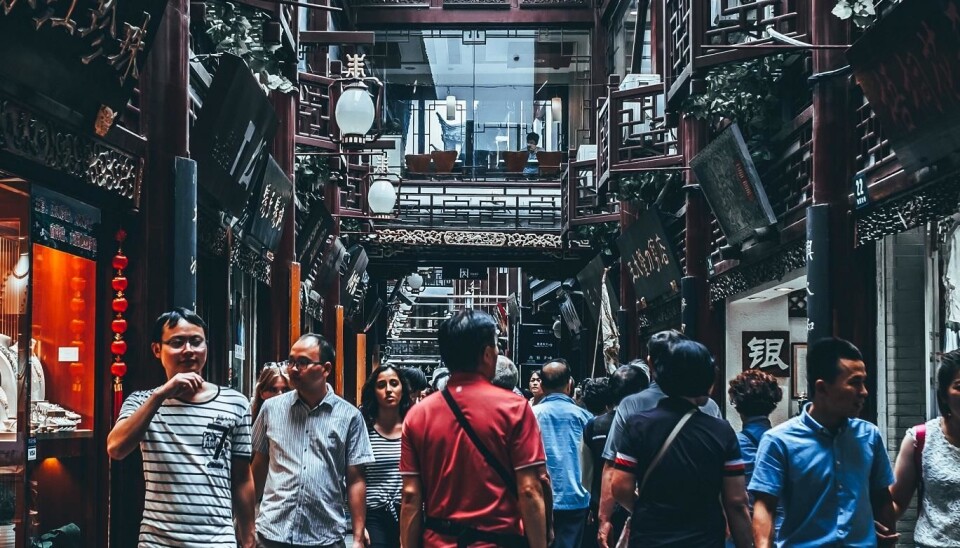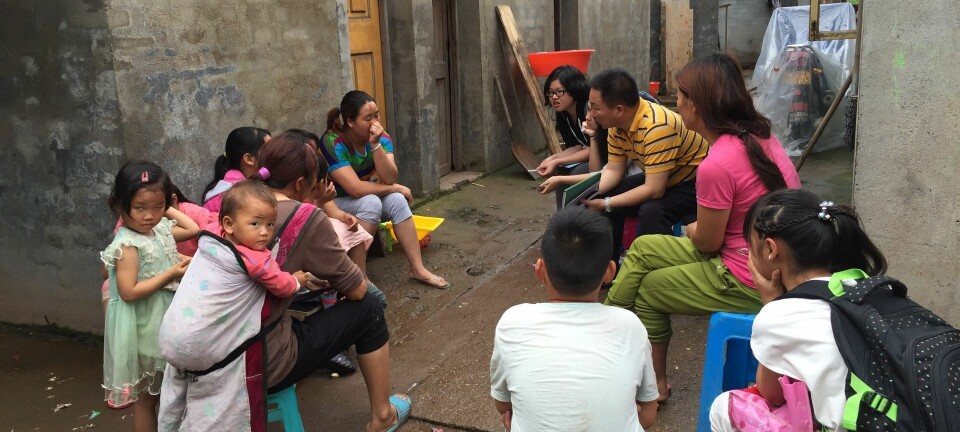
Chinese are more right wing than Americans
Twenty per cent of adults in China describe themselves as libertarians and believe that the government should not redistribute income, according to a new survey. This is higher than the US, often thought to be a more libertarian country.
Chinese children learn that inequality is okay and so they accept inequality as adults, says Alexander Cappelen, professor in economics at the Norwegian School of Economics (NHH).
Cappelen is part of a research team that has surveyed a representative sample of the Chinese population about their attitudes towards inequality and equitable distribution.
To put these attitudes in a global perspective, the researchers compared their survey results in China with those from other countries, including the US and Germany.
To their surprise, they found that the Chinese respondents were far more right-wing than Americans.
"According to our data, as many as 20 per cent of the Chinese could be considered Libertarians. This is a group that thinks that the government should not distribute income at all,” says co-author Cornelius Cappelen, from the Institute for Comparative Politics at the University of Bergen, Norway.
This is a much larger proportion than in the US, where taxing the wealthy to give to the poor is not thought to be very popular.
Lifted out of poverty
China has seen formidable economic growth since the late 1990s, which has lifted millions of people out of poverty.
The research shows that 80 per cent of people in China are satisfied with their lives. The survey revealed that 85 per cent are optimistic about the future, while 75 per cent believe their lives have improved over the last five years.
These numbers are sky-high compared to other countries, says Kristin Dalen, a researcher at Fafo, a Norwegian research foundation that mainly focuses on labour and social research.
"But the rapid economic growth has also led to a dramatic increase in inequalities in the population," she says.
Dalen heads a research programme to find out what Chinese people think about inequality, the fair distribution of tax income and the development of the Chinese welfare state.
The researchers’ main source of information wwere three national surveys, each with between 2,500 and 3,500 adults taken in 2004, 2009, and 2014.
Read More: Inequality may lead to violence and extremism
More welfare, but inequality remains substantial
The Chinese authorities began to address the problem of inequality in the early 2000s, says Dalen. At this times, the Chinese government initiated several reforms.
In 2004, 15 per cent of people living in the rural areas of China had some form of health insurance. Ten years later, 94 per cent had health coverage.
More than 62 per cent of people in cities had pensions in 2014 -- double the number from 2004.
But although the Chinese welfare system has moved more towards a universal model that is characteristic of many European countries, there are still some big differences.
And the inequalities continue to grow.
Read More: Four charts which should worry you about rising house prices and inequality
The Chinese want a better welfare system
The new reforms launched by Chinese authorities have been welcomed by the Chinese population, researchers found.
In 2004, 44 per cent of the population believed the state was in the best position to ensure basic schooling. Ten years later this proportion was closer to 80 per cent. The same applies to basic healthcare, and, to a great extent, care for older people in society, says Dalen.
Yet although researchers found that most respondents wanted a more comprehensive welfare system, they were nevertheless not that concerned about economic equality and justice.
Read More: Global poverty and inequality: is welfare only for the lucky few?
Compared opinions in China with Germany and the US
Cappelen and his colleagues took some of the questions from the Chinese survey and asked them of people in Germany and the US.
The researchers chose Germany and the US because they are considered to be two extremes: Germany is a relatively egalitarian society with a large and well-functioning welfare state, while the US has a fairly high degree of income inequality and a rather small welfare state.
Majorities in all three countries said it was fair that people who worked hard also earned more money.
But when it came to luck and talent, opinions differed. A clear majority in China believed it was fair that some people were wealthier if they were seen to be more talented. This view was less common among respondents in both the US and Germany.
Read More: Kids with rich grandparents do better in school
Luck, talent, and redistribution of wealth
Most people in all three countries surveyed believed that it was unfair to get ahead based on pure luck. But, in China, respondents also thoguht that luck was a fair source of inequality--more so than in the US or Germany.
Many of the Chinese people surveyed thought that people were poor because they were lazy, Cappelen says. In addition, compared to Germany and the US, many more Chinese respondents expressed the view that people were poor because they didn't have what it takes to succeed.
"We believe that these questions can tell us more about general attitudes towards redistribution of wealth," says Cappelen.
The research has not yet been published in a peer-reviewed journal.
----------------
Read more in the Norwegian version of this article at forskning.no




































